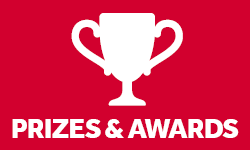Undergraduate Research Opportunities Programme Showcase
Friday, 29 November 2019

The Undergraduate Research Opportunities Programme (UROP) offers undergraduate students the chance to gain hands-on research experience on projects covering all disciplines across the University. Research projects last six weeks over the summer break, or can be part-time over a longer period, and those students involved with the scheme will receive a bursary of £1,320. Each year, all students who undertake a project through UROP are invited to present their research at The Undergraduate Research Showcase. The event this year took place on Wednesday 13 November.
Each student presents to a pair of judges (a previous UROP supervisor and a previous UROP student), with the projects grouped in alignment with the research themes of the University. The judges then select a ‘best in category’ for each research theme, with an external research professional selecting the two overall winners. These selected students are announced at the presentation evening, which follows the afternoon of judging, and the event closes with a drinks reception. This year, our two overall student winners were Ruth Lloyd and Bilal Mohammed.
Ruth’s project explored the life and work of Annie Ure, who was among the first female archaeologists to lead an excavation in Greece. Specialising in Boeotian Archaeology, she went on to co-found and curate the Museum of Greek Archaeology – now the Ure Museum of Greek Archaeology – at the University. Annie Ure studied Classics at University College, Reading, and received her Bachelor of Arts in 1914. As this was before we received the power to award our own degrees, she is technically a graduate of the University of London.
Working with Professor Amy Smith and Dr Amara Thornton, Ruth created a biographical pamphlet about Annie, and in doing so she uncovered how important Annie was in the establishment of the Museum. In her words: “Through my project I was made aware of how many women often go forgotten in the world of archaeology, the work of female collectors, curators and cataloguers is often said to be the work of their male counterpart. In this case, in writing a biography of Annie, I was able to make understood her work and reiterate the role she played at the University and the Museum.” Some of Ruth’s research was also used to create a ‘Museum in a Box’, to make the re-telling of Annie’s life more interactive.
Bilal’s project tackled the issue of medicines waste, and considered how existing technologies could help address this problem. A 2010 report evaluating the scale and causes of medicines waste estimated the cost to the NHS to be £300 million per year, which equates to £1 of every £25 spent on primary care and community pharmaceutical and allied products use. It is predicted that £90 million of unused medicines is stored in people’s homes, £110 million is returned to community pharmacies, and up to £50 million is wasted from care homes. Of this medicines waste, it is estimated that 30-50% can be avoided.
Bilal, with Professor Rachel McCrindle, Professor Parastou Donyai and Professor Simon Sherratt, investigated whether a biomedical solution could help address the problem through the identification and design of prototype sensors, placed on pharmaceutical packaging. These sensors, such as temperature and humidity sensors, NFC (Near Field Communication) tags and QR (Quick Response) codes could help facilitate the safe reuse of medicines, and also improve the accuracy of how they are used by patients. The solutions were found through repurposing technology already used in other industries, such as food and advertising.
Please join us in congratulating our winners!
For more information on the UROP scheme, please visit the Programme’s webpages.
